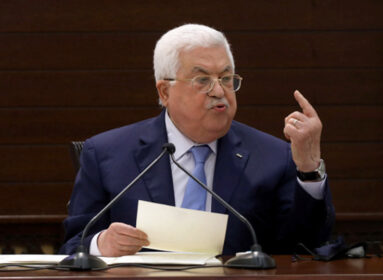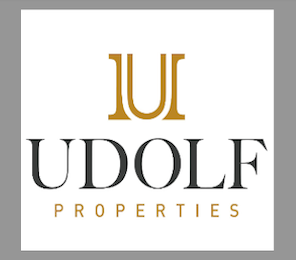By Cindy Mindell ~
HARTFORD – Every three years starting in 2008, the Joint Distribution Committee International Centre for Community Development (JDC-ICCD) canvasses
Jewish leaders throughout Europe to better understand their concerns and priorities. The most recent “Survey of European Jewish Leaders and Opinion Formers” was conducted between June and October, 2011 by JDC-ICCD and a research team led by Dr. Barry A. Kosmin of Trinity College in Hartford.
The 191-item survey was conducted in English, French, Spanish, German, and Russian and included 13 topic areas, including: antisemitism/security, status issues and intermarriage, Israel, denominational tensions, and decision-making and accountability. Answers were culled from 328 Jewish community elites in 32 countries, including organizational executives, current and former board directors of communities, rabbis from all denominations, school principals and educators, media editors and publishers, academics, intellectuals, and recognized opinion-formers. For a variety of reasons, not all of the countries queried chose to participate in the survey.
Founded in 2005 and housed at Oxford University, the JDC-ICCD works to understand the phenomena of Jewish community and identity and aims to strengthen the overall quality and range of community development work across Europe and Latin America. JDC-ICCD’s main focus is applied research aimed at analyzing ongoing changes and transformations taking place in Jewish life. In addition, the organization hosts think-tank sessions on community innovation, conferences with field practitioners, and training seminars with Oxford University professors for Jewish and non-Jewish professionals, lay leaders, and organizations.
“In an ever-changing landscape, European Jewish life has undergone substantial transformations since 1989,” writes JDC-ICCD president Alberto Senderey in the survey’s foreword. “At the moment, when the European context and project are veering towards instability, it is especially relevant to have access to a survey that can truly gauge Jewish leaders’ priorities, anxieties and hopes. For example, while much has been said about the development of Central and Eastern Europe’s Jewry in the last years, namely the patterns that approximate it to its Western counterparts, we cannot yet identify in what fields and to which degree. In this sense, the European Jewish Leaders’ Survey can help elucidate this complex picture by exploring a whole span of related issues.”
Dr. Barry A. Kosmin is director of the Trinity College Institute for the Study of Secularism in Society and Culture, and research professor in Trinity’s Public Policy & Law Program. He spoke with the Ledger about what the survey reveals about the current trends and future direction of European Jewry.
Q: How did you get involved in the project?
A: I guess I was chosen because I’m knowledgeable about the Jews of Europe and have written books and articles on the topic. In the U.S., I directed the 1990 National Jewish Population Survey. I’ve also had a lot of experience leading social research projects around the
world – not just on Jews but also in Africa and India. From 2000 to 2005, I was executive director of a think-tank, the Institute for Jewish Policy Research in London, and I was treasurer of the European Foundation of Jewish Culture, so I know many of the communities in this study. I’ve also been an academic advisor for several studies of European Jews sponsored by JDC in the past, e.g. in Hungary and in the Baltic States after the end of Communism.
Q: Why do you think some of those you approached chose not to participate?
A: There are all sorts of reasons why people might not respond to the
invitation to give their opinion. Many are just too busy. Others just do not like to participate in surveys. Some people are also suspicious even when you offer confidentiality. The survey questionnaire was offered in five languages: English, French, German, Spanish and Russian, but it covered 32 countries so not everybody had it in their native language – if they were, for example, Swedish or Turkish. That meant they might not have been able to understand the questions.
So getting around a 50-percent response rate is quite good cooperation under the circumstances. The rate of response was nearly the same in 2008 and in 2011 the list was bigger. Interestingly, we had more Orthodox responses this time.
Q: What findings were most surprising or enlightening to you?
A: Well, it might have been expected, but the gap between Eastern and Western European Jews is closing – both in how they see the world and in what problems and issues they have in their communities. The leadership was surprisingly diverse in background, in terms of age and gender, but also religiously: one third of the leaders were secular Jews, one third were Reform and Conservative/Masorti, and one third were Orthodox.
Jewish leaders seem very committed to the “European political project,” that is, the European integration and the European Union.
Q: What misperceptions regarding European Jewish communities do you encounter or are aware of among American Jews?
A: Europe is not just a museum or one big cemetery for Jews. First of all, there are still more than 1.5 million Jews living in Europe and there are large and flourishing communities – for example in Paris (300,000), London (200,000), and Budapest (50,000); new communities have arisen in recent decades in Spain and Germany as a result of immigration. There has been a notable revival of religious and cultural life.
Q: What are some facts, trends, and/or phenomena among
European Jewish communities that surprise American Jews?
A: Most countries still have an Orthodox chief rabbinate so, as in Israel, denominational issues affecting Jewish status and intermarriage are very critical and threaten communal unity.
Interestingly, the Western Europeans were more worried about
antisemitism in their countries than the Easterners. This is a complete reversal of the pattern of European Jewish history.
Westerners are also more critical of Israeli government policies than are leaders from the former Eastern Bloc. But there was overwhelming agreement that the communities should be open to all political viewpoints.
Q: How will the findings be used in your own work and by JDC? How can American Jewish institutions and communities best use the survey findings?
A: JDC is in the business of advising on community capacity-building and leadership development so it’s good for them to know how their “customers” think and what their priorities and concerns are. For my own work, the value is that I learn what kinds of questions work in international surveys. We live in a world of rapid change but interestingly, there is no regular survey of the Jewish leadership in the U.S. and it would be good to have one as comparison. I don’t think Jewish organizations do enough self-evaluation and research so this is a good model for them to follow.
Q: Can you posit as to how the 2014 Survey might bear out some of the respondents’ biggest concerns and aspirations?
A: The list of concerns for the future involves: Finance and fundraising, which, given the euro
currency crisis is very critical. Demographic issues and what to do about accepting and educating intermarried people’s children, which in turn are very inter-linked with denominational tensions.
Some communities are concerned about the political influence of the growing Muslim population and that of course links to the Israel-Zionism issue and so to manifestations of antisemitism.
So, I expect the communal agenda will be very similar in 2014. The real value of a time series of regular surveys using replicate questions is that one can really measure what’s changed and what hasn’t. That helps decision-making and focus.
Excerpts from the “Second Survey of European Leaders and Opnion Formers, 2011” follow. To see the full survey and learn more about the JDC-International Centre for Community Development visit www.jdc-iccd.org.
Excerpts from the “Second Survey of European Leaders and Opnion Formers, 2011”
As in 2008, respondents to the 2011 questionnaire were invited to expound on two aspects of the survey: “Which topics are of particular importance to you and your community?,” and “describe your personal vision for your community’s future.” Ninety percent of the participants answered these two open questions.
“One can observe some common themes and issues shared by many respondents,” writes project manager Marcello Dimentstein, JCD-ICCD operations director. “These preoccupations, interests, hopes, foresights and even anxieties would otherwise remain ‘hidden’ within the quantitative data. The value of these arguments relies not on how many people agree with them but on their internal logic and persuasiveness. Our goal was to determine not only commonalities amongst Jewish leaders across Europe but also to identify individual voices expressing unique ideas.”
Among the issues expressed are discomfort towards divisiveness; the need for rendering communities more attractive, especially to non-affiliated Jews; the need to engage younger generations in Jewish life; more investment in Jewish education and continuity; and fears of demographic decline, among others.
Many respondents expressed their desires as to what their community should look like in the coming years, notes Dinerstein, with a high proportion of answers stressing the hope of having more pluralist and inclusive communities.
“I wish for (and am working on this): more Jewish education for all age groups that is so attractive that people actually take advantage of what is offered. I wish for the greatest possible diversity in religious and cultural terms, in which particular offerings for a precise target group are perceived as enriching, not as excluding others; I wish for religious maturity, i.e. that young people and adults can find their own position within the broad spectrum of Judaism—and that statements like the following one day will be a thing of the past: ‘I would like to be a more active Jew, but I find “Judaism” off-putting because it is too old-fashioned, patriarchal, strict …’; Instead, I wish that people would say: Within Jewish diversity, which is an expression of our common responsibility for the Jewish future, for Tikkun Olam and Kol Israel, I have found my very own place through diverse experiences and through intense, attractive Jewish learning.”(Germany)
“I would like to see my community as one accommodating people with a Jewish identity based primarily on their self-definition as Jews (with certain limitations).” (Czech Republic)
“As societies inevitably change, so Jewish communities have to adapt to new social conditions. […] There is an increasing need for tolerance for religious/cultural pluralism within the Jewish community and for initiatives that would further cultural and artistic creativity that may manifest the particular situation of Jews living in the present societal conditions.” (Denmark)
Many respondents stressed building a much more “outward” looking Judaism, Dinerstein writes, connected with the society at large and engaged in social justice:
“I hope for a pluralistic society where the Jewish presence is an important and dynamic part, where we as Jews have an open and inclusive attitude towards others, especially the new ‘Other”, with a proud, creative and confident Jewish identity replacing the traumatized one of being the eternal victim.” (Sweden)
“I would like to see my community develop a more positive narrative about its role in society and its
potential to contribute to strengthening the fabric of this society by more actively fostering social justice
initiatives and more concretely exploring the link between Jewish values and teachings and social justice.” (UK)
“[I would like] an open, pluralist community which embraces a humanistic Judaism, which feels comfortable in the country to which it belongs; which is not obsessed with the fight against antisemitism and which is ready to contribute its share in the fight against all social injustices, while at the same time calling for a positive, cultivated, open-minded Judaism; a community in which children are not educated to be fearful and mistrustful of others.” (France)








 Southern New England Jewish Ledger
Southern New England Jewish Ledger











